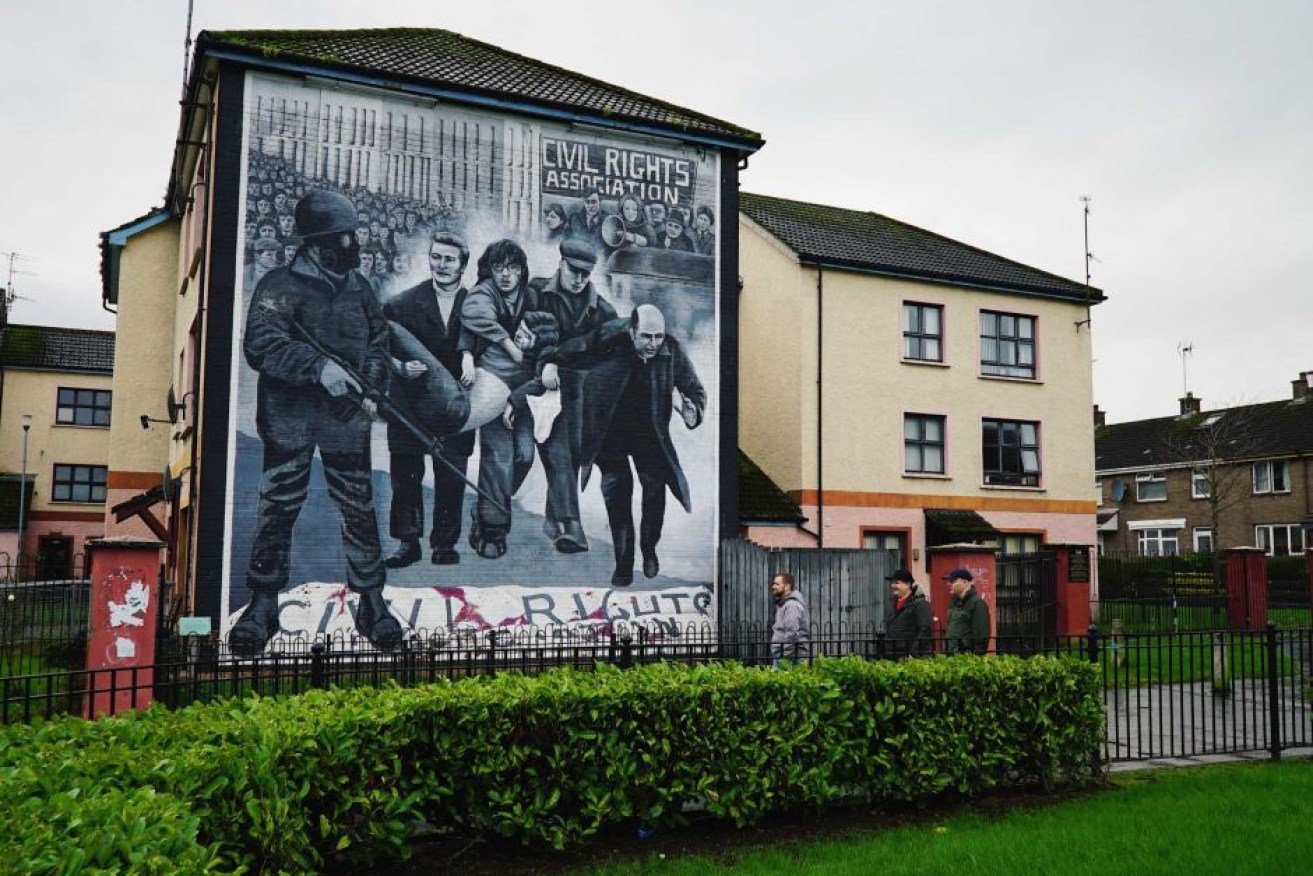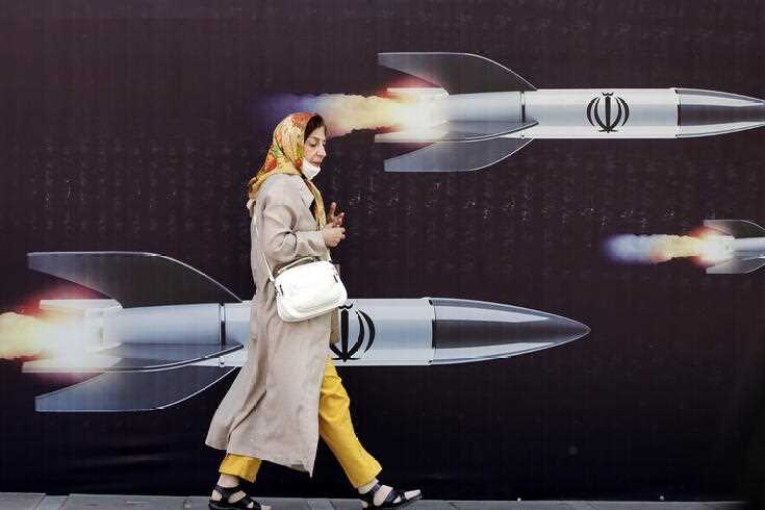Derry residents reflect on terror of The Troubles in wake of fresh violence in Northern Ireland

Markers of sectarian violence can be seen on just about every corner in Derry. Photo: ABC News
A car bomb outside a courthouse, hijackings and masked men with guns – the terror of The Troubles came back in a flash for 72 hours in Northern Ireland last week.
“No going back. We do not want a return to paramilitaries,” shouted a man into a crowd at a peace rally organised in the wake of renewed violence in Londonderry, north-west of Belfast.
A dissident group calling itself the New IRA (Irish Republican Army), is believed to be behind co-ordinated attacks last week.
Five men were arrested, but four have since been released by police.

Eamonn McDermott said the New IRA was not capable of attacks like the Provisional IRA. Photo: ABC News
The group is one of the larger fringe paramilitary groups in Northern Ireland, but it has limited support and capacity, said veteran Derry security journalist Eamonn McDermott.
“The danger is somebody could get killed, but to see the dissidents in context, they’re not capable of mounting any kind of sustained attacks like the Provisional IRA,” he said.
Estimates put the New IRA’s ranks at a few hundred republicans who want Northern Ireland to unite with the Irish Republic, shirking British rule.
“Their argument is as long as the British are here, they have a right to fight,” Mr McDermott said.
Mr McDermott, who was on the streets of Derry during The Troubles as a teenager, sees Brexit as the biggest threat to Northern Ireland’s peace pact if it incites young republicans.
“Brexit could put a border back there, a hard border, it could strike a chord among young people who realise there is a problem – there is a border there they don’t like or want,” he said.
‘These are yesterday’s men’
Any hint of the violence of the old Northern Ireland angers most people in Derry, which is known as Londonderry to unionists and Derry to republicans and nationalists.
“The people of Derry have come out to say not in our name, get off our backs,” Sinn Fein MP Elisha McCallion said.

History student Seamus McLaughlin said alienation, poverty and unemployment are behind frustrations. Photo: ABC News
“These are yesterday’s men,” Seamus McLaughlin said, when asked about young men his age who join paramilitary groups to use violence to achieve their aims of a united Ireland.
The 19-year-old history student was born two years after the Good Friday Peace Agreement was signed in Belfast in 1998, largely bringing an end to decades of deadly conflict across Northern Ireland.
“A certain section of the community are alienated. There’s a lot of poverty, unemployment,” Mr McLaughlin said.
Markers of sectarian violence can be seen on just about every corner – including a controversial mural in the centre of town that reads “Unfinished Revolution”.
But the vibrant murals also bring tens of thousands of visitors to see the history writ large in the Bogside – once a self-declared nationalist area of Derry.
In the Bogside, there are also new republican youths who reject the peace agreement that brought The Troubles to an end, and refuse to condemn the recent violence in Derry.

Spokesman Patrick Gallagher said Saoradh “understood” the violence. Photo: ABC News
Patrick Gallagher, a spokesman for Saoradh – a hardline political group formed in 2016 – said the organisation had no links to the New IRA, but “understood” the violence.
“Obviously Ireland is still under British occupation,” he said.
“Our country is partitioned, so while that remains, we understand there will be women and men out there willing to engage the enemy and fight for a reunified Ireland.”
Dale Pankhurst, a young councillor with the Democratic Unionist Party in Belfast, is wary of playing down the threat posed by young dissidents.
“When you base it on an ideology, it’s romantic, it appeals to young people,” he said.
“They don’t see the consequences. They don’t realise they could go into jail for 25 years … and that’s very sad.”
Fears of history repeating itself

The Troubles exhibition organiser Julieann Campbell’s uncle was killed on “Bloody Sunday”. Photo: ABC News
During The Troubles, 3637 people were killed and tens of thousands more were injured. Most of the victims were civilians, caught in the crossfire.
Julieann Campbell’s uncle John “Jackie” Duddy was killed on “Bloody Sunday” when British soldiers shot and killed 14 unarmed civilians in January 1972.
“He was the first person killed in Bloody Sunday and he was just 17 and he was a promising boxer. He could have boxed in the Olympics,” she said.
Ms Campbell said many families of victims of The Troubles across Northern Ireland had waited decades for inquests and investigations into their relatives’ deaths.
“We’re willing to acknowledge what has happened here, and we want the authorities to [also]. It’s a long road,” she said.

The murals also bring tens of thousands of visitors to see the history writ large. Photo: ABC News
Ms Campbell also helps to organise a moving annual exhibition that displays pairs of shoes representing victims of The Troubles across Northern Ireland.
“It was to empower families who have lost someone to feel like they’re doing something, to talk about their case, and what they expect from the government – the Irish and British governments,” she said.
She said people in Derry “buttoned up their coats” and got on with life after last week’s attacks, not wanting to give in to fear of paramilitaries with “no mandate”.
“We’re very forward-thinking in Derry, and positive.”
–ABC








